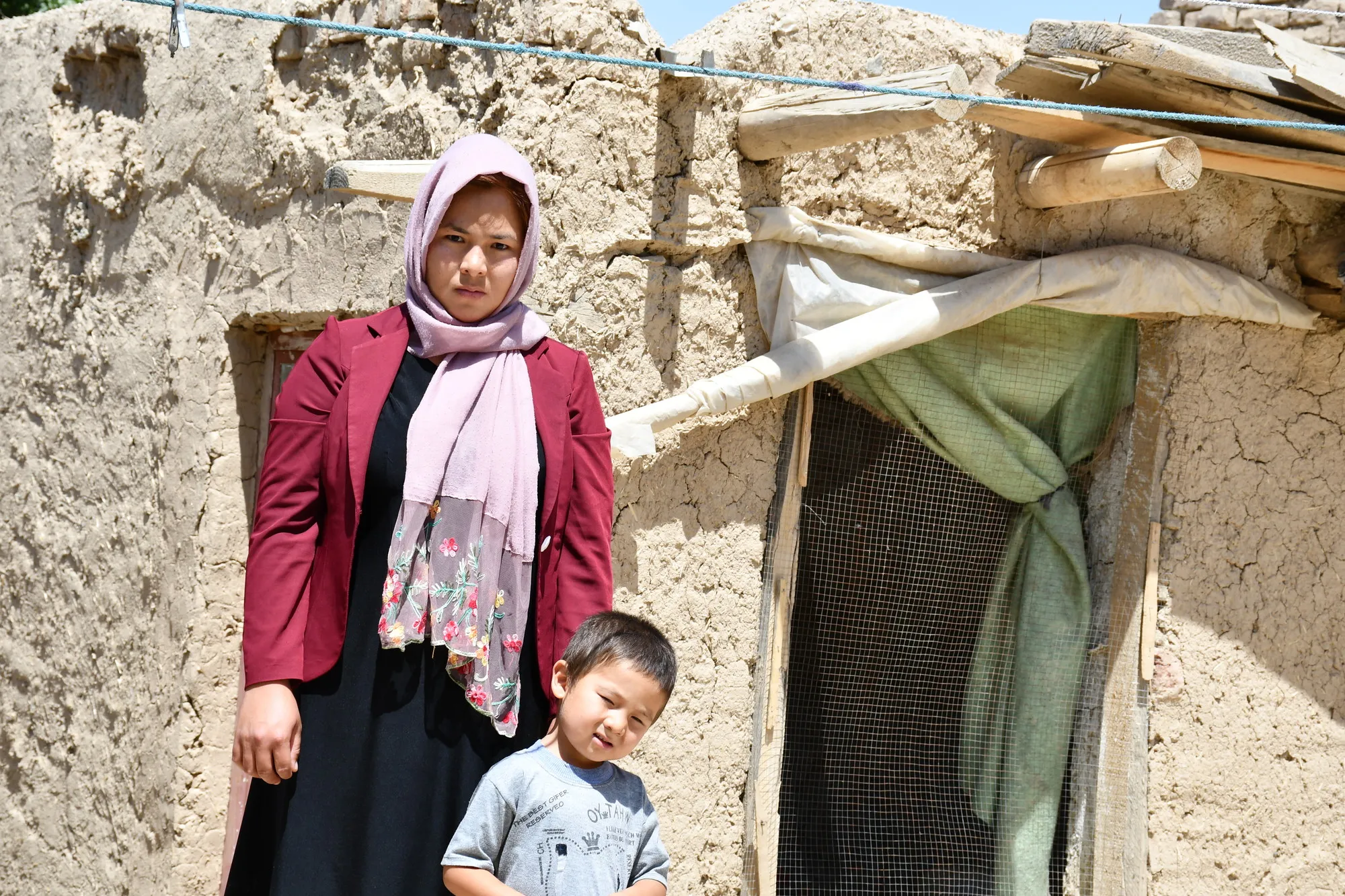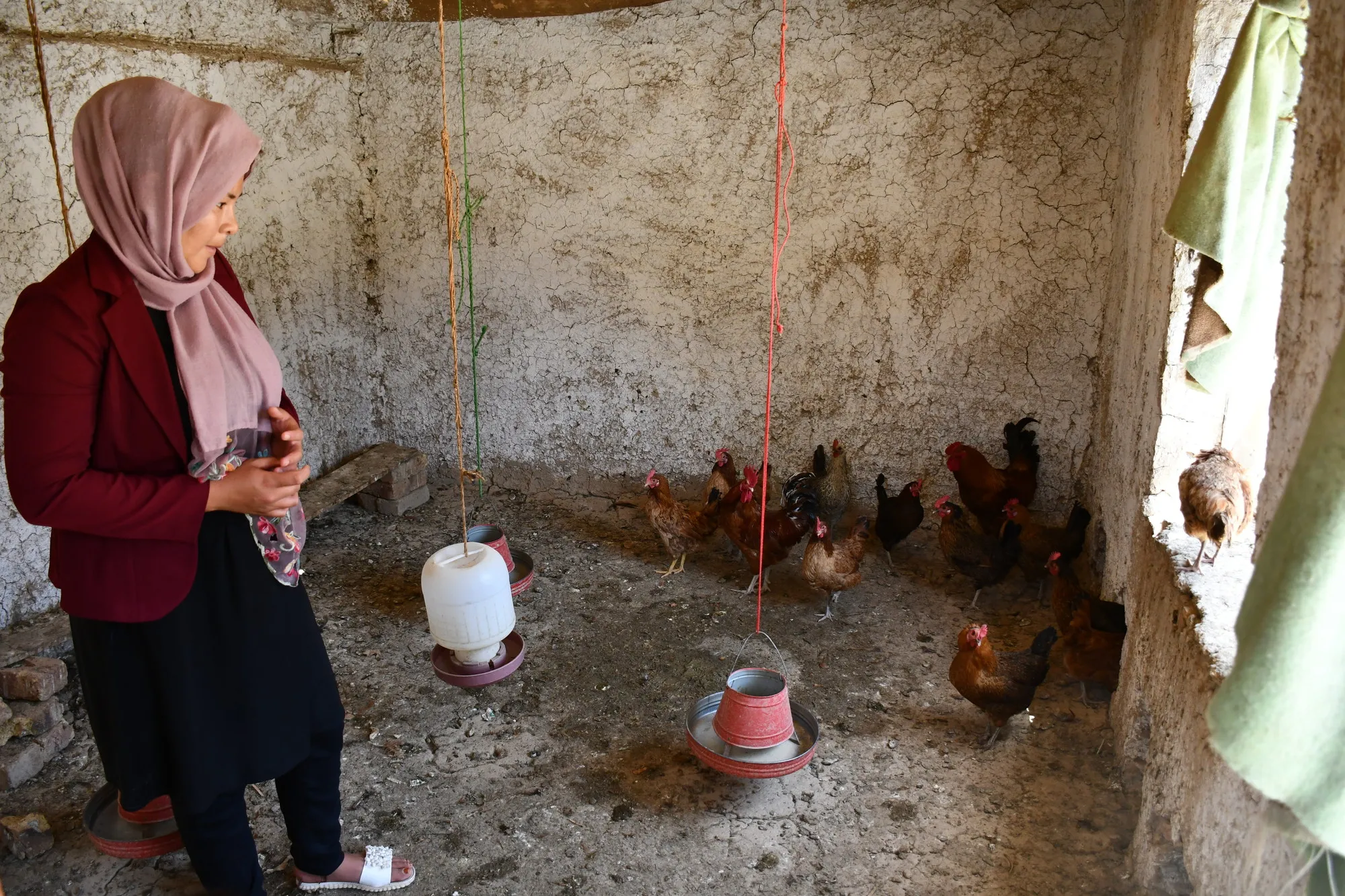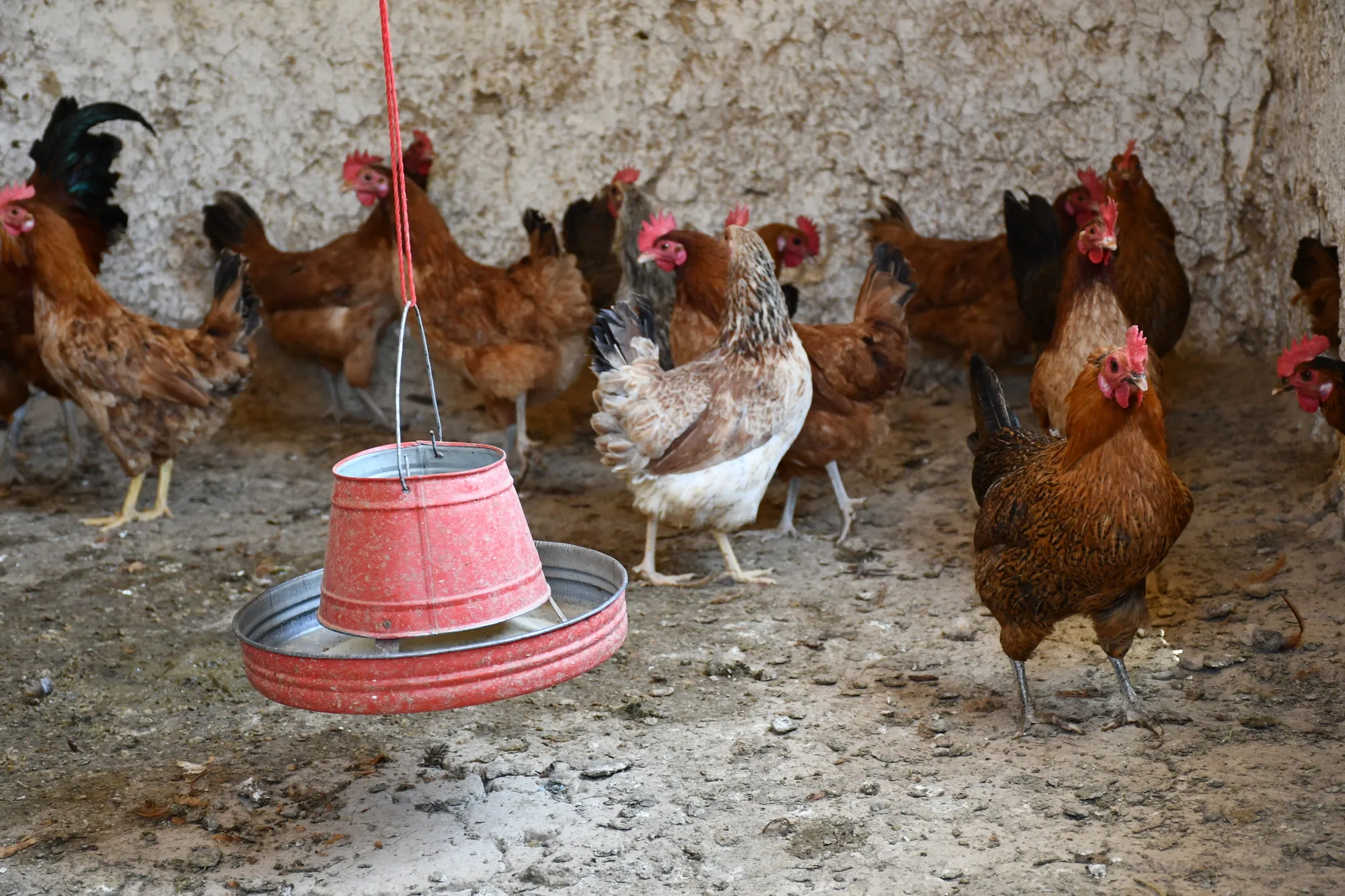Zainab, 24, lives with her husband and two children in a settlement for internally displaced people in Kabul, Afghanistan. The couple was getting by on his work as a day laborer and her work raising chickens and selling eggs until coronavirus arrived.
“I can’t praise our life before the coronavirus, but we were doing well for ourselves. My husband and I were working to provide a good life to our son and then expecting a new child,” she says.
When the pandemic hit, people panicked. Prices soared, and food became unaffordable for millions. “People started hoarding and storing unnecessary amounts of food,” Zainab says. “The first few months were the toughest.”
Afghanistan was already in the throes of a serious food crisis brought on by ongoing conflict, extreme weather, and high food prices. Coronavirus compounded the already dire situation. Now 13.15 million people — 42% of the country’s population — are facing hunger.
Zainab’s husband lost his job as soon as the government announced lockdowns. The reduced income combined with rising food prices made feeding their family difficult.



